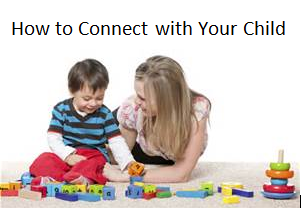In today’s
world of hectic schedules and electronic entertainment, it can be hard to find
time and ways to connect with your child. I recommend carving play time into
the schedule to improve your relationship with your child. Here are some tips
for creating a special play time that will encourage an emotional bond:
1. Turn off technology: Make the play time an electronics-free zone.
For 15 minutes, turn off your phone and give all your attention to your child.
Make sure the child’s electronics are off too (no TV in the background!) and
really focus in on the moment.
2. Allow your child to lead the play:
Kids are used to being told what to do. For this play time, allow the child to
lead and make decisions that you, the parent, follow. This should be within necessary
limits, such as maintaining safety and using one room of the house. Besides
these rules, however, the child should have control over what happens in the
play.
3. Leave your “limitations” at the door:
It is not uncommon for parents to tell me in my practice that they “don’t know
how to play” and that this idea intimidates them. Some hesitation is
understandable; it may have been a long time since you played! Luckily, your
child knows how and will teach you if you let him or her. Try starting by
reflecting what your child is doing or what a character is feeling. For
example, “You’re working to build a big tower,” or, “The boy feels sad to say
goodbye.” Focus on the child’s experience rather than your own hesitation and
you’ll be much more able to be present for your child and understand the
communication.
4. Ask questions: In order to let the
child lead, you may want to ask them in a soft voice how to respond. For
instance, if the child is playing school and is the teacher, you might whisper,
“What do I say next?” or “What kind of student should I be?” This gives the
child the opportunity to be in charge and allows you to better understand the
directives he or she is giving you.
Employing
new guidelines for play can feel uncomfortable at first. However, if you are
able to tune into your child’s play, you may find a whole new way of connecting
and relating that far outweighs any initial discomfort.
Emily Herber is a child and family therapist at The Center for Psychological Services.
Emily Herber is a child and family therapist at The Center for Psychological Services.

No comments:
Post a Comment